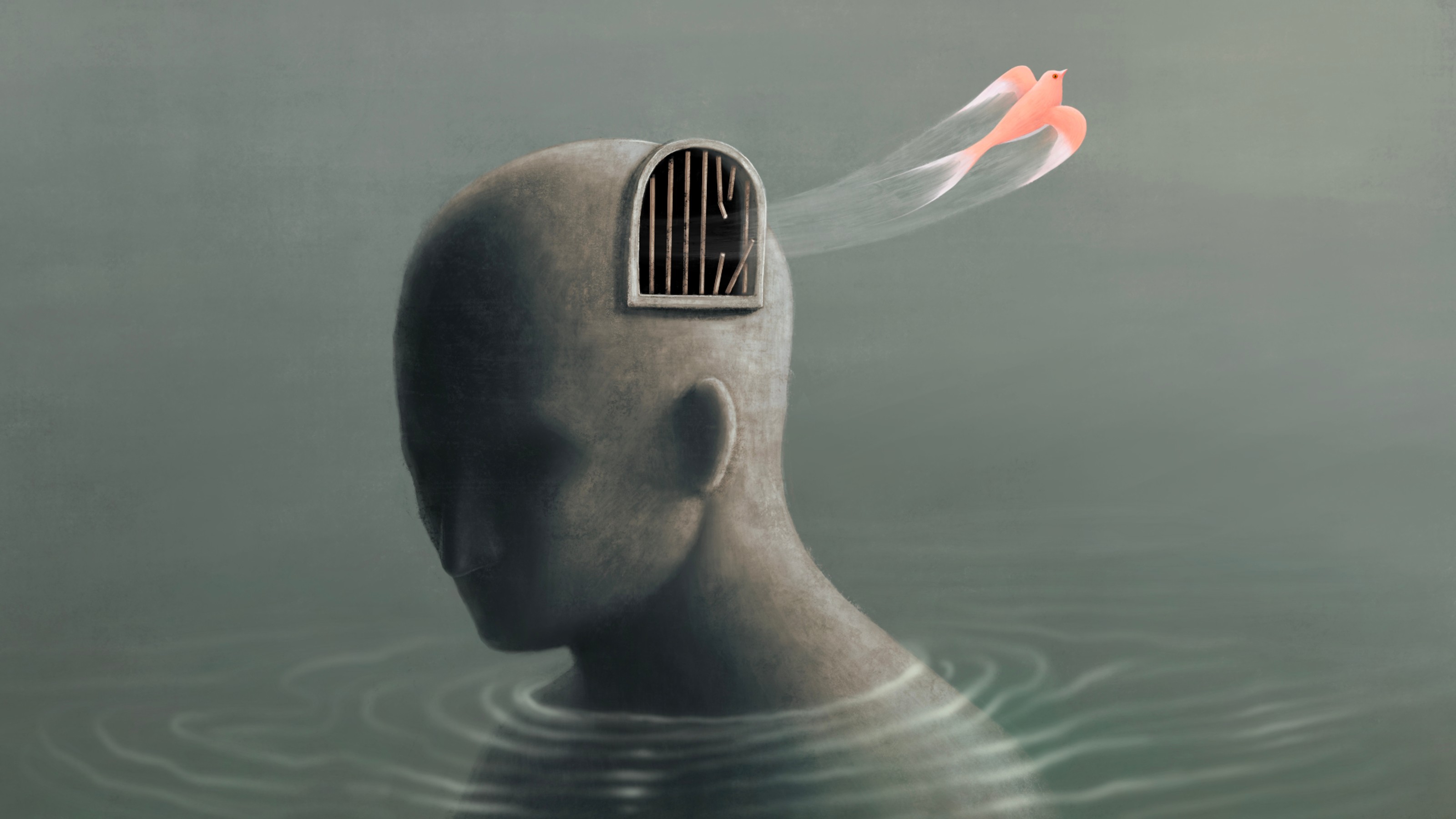4 relationship problems that can be linked back to early childhood

Credit: DenisProduction.com via Adobe Stock
- Fear of abandonment or other attachment issues can stem from childhood loss (the death of a parent) but can also stem from mistreatment or emotional neglect as a child.
- Longitudinal studies have proven that a child’s inability to maintain healthy relationships may be significantly impaired by having an insecure attachment to a primary caregiver during their early development.
- While these are common relationship problems that may be rooted in childhood experiences, as adults, we can break the cycle.

Fear of abandonment can stem from childhood loss or childhood maltreatment. Photo by Koldunova Anna on Shutterstock
“Powerful experiences can alter the functioning of an adult brain, but with children, traumatic events may change the entire framework of their brain.” – Dr. Bruce Perry, Senior Fellow of the Child Trauma Academy.
Fear of abandonment can stem from childhood loss – the death of a parent or loved one – but it can also stem from maltreatment during childhood. Maltreatment or neglect as a child can be difficult to pinpoint, especially if that mistreatment isn’t physical but more of an emotional nature.
Brain development, according to this Child Welfare Information Gateway study, is actually the process of creating, strengthening and discarding connections among the neurons we’re born with.
These connections are called synapses and they organize the brain by forming neural pathways that connect various parts of the brain governing everything we do.
The growth of each region of the brain depends largely on receiving stimulation for that area – think of it as a muscle that needs to be exercised in order to grow strong and be useful. Leaving that muscle unattended, not giving it movement and strength, will eventually lead it to atrophy, making it a deterrent for your entire body to function properly.
This is how maltreatment works. To remedy this issue in your relationship, work on exercising that “attachment muscle”, allowing yourself to become more vulnerable and open with your partner.

An inability to commit to the relationship can be really difficult to overcome. Photo by Motortion Films on Shutterstock
This 2016 study by Winston and Chicot offers proof to the theory that parental inconsistency and lack of love can lead to long-term mental health problems as well as to reduced overall potential and happiness later in life.
The human brain is made of over 100 billion brain cells that each connect to over 7000 other brain cells – it’s an extremely complex system. And yet – by the age of 3, a child’s brain has reached more than 90% of its adult size.
The experiences that a baby has within the first three years of life lay the ground for how their brain is wired well into adulthood. While it’s possible for us to “re-learn” things as adults and change the framework of our brains this way – there is much importance laid on the connection and relationship that an infant has with their caregiver.
Longitudinal studies have proven that a child’s inability to form and maintain healthy relationships throughout life may be significantly impaired by having an insecure attachment to a primary caregiver during their early development years.
To address this common relationship problem, consider how you view attachment, dedication and loyalty in relationships – there is a good chance you are already very committed to your partner but simply fear the “label” of being so invested in a relationship.

Entitlement can be an unrealistic, unmerited and inappropriate sense of how you should be treated and what you deserve.Image by Artur Szczybylo on Shutterstock
Entitlement, defined as an unrealistic, unmerited or inappropriate expectation of favorable living conditions and treatment by others, can also stem back to the experiences we have during childhood. To remedy this issue in a relationship can be quite difficult, as entitlement is an inherently selfish quality.
According to Better Help, there are two main reasons why people act entitled in relationships – they are either overcompensating for never getting what they want or are so used to getting what they want that they can’t even entertain the possibility of not getting what they want.
Overcompensating for past wrongs – an example being a child who grows up lacking the toys, games, and clothes owned by their peers may grow up to believe they are entitled to what they missed out on.
A habit of getting what they want all the time – an example being a child who was given whatever they asked for without reason which can lead them to believe they should always get what they ask for even if it’s not realistic.
Childhood emotional neglect is a deep and long lasting wound that can impact all future relationships. Photo by rawf8 on Shutterstock
Childhood emotional neglect is a deep and long-lasting wound that isn’t always easily detectable. In fact, many times, these feelings of worthlessness and defectiveness that children feel aren’t imposed by parents who mean harm to their child.
According to Good Therapy, there are four different kinds of parenting styles that can lead to your child feeling worthless or defective.
Authoritarian parents: they want their children to follow the rules but have very little time or inclination to listen to their child’s feelings or needs.
Permissive parents: they have a very laid back attitude about child-rearing, but they may be too laid back – which may let children do what they wish and “fend for themselves.” This can lead to children feeling as though they “aren’t worthy of their parent’s time” and in the future, they may feel unworthy of their romantic partner’s time as well.
Narcissistic parents: they feel as though the world (and their children) revolve around them, placing their own needs and desires above those of their children. Adults who were raised by narcissistic parents may always allow their partner’s needs and wants to overshadow their own, feeling as though they are not worthy of having their own needs met.
Perfectionist parents: they always believe their children need to do better, which can lead to their child believing they are inadequate even after accomplishing something good. Adults who were raised by perfectionist parents may also believe they are never “enough” for their partners, placing themselves at a lower level, causing an imbalance in their relationship.
Addressing issues of self-worth often involve therapy, self-help programs and a lot of time to heal and retrain your brain in how you view yourself.
“Our brains are sculpted by our early experiences. Maltreatment is a chisel that shapes a brain to contend with strife but at the cost of deep, enduring wounds.” – Teicher, 2000.





